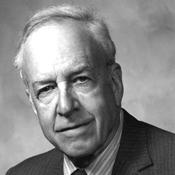M. Scott Peck Quotes - Page 5
M. Scott Peck (2012). “The Road Less Travelled: A New Psychology of Love, Traditional Values and Spiritual Growth”, p.6, Random House
M. Scott Peck (2002). “The Road Less Traveled, 25th Anniversary Edition: A New Psychology of Love, Traditional Values, and Spiritual Growth”, p.120, Simon and Schuster
M. Scott Peck (2002). “The Road Less Traveled, 25th Anniversary Edition: A New Psychology of Love, Traditional Values, and Spiritual Growth”, p.83, Simon and Schuster
M. Scott Peck (2010). “Further Along The Road Less Travelled”, p.119, Simon and Schuster
M. Scott Peck (2002). “The Road Less Traveled, 25th Anniversary Edition: A New Psychology of Love, Traditional Values, and Spiritual Growth”, p.160, Simon and Schuster
M. Scott Peck (2002). “The Road Less Traveled, 25th Anniversary Edition: A New Psychology of Love, Traditional Values, and Spiritual Growth”, p.16, Simon and Schuster
It is only because of problems that we grow mentally and spiritually.
M. Scott Peck (2002). “The Road Less Traveled, 25th Anniversary Edition: A New Psychology of Love, Traditional Values, and Spiritual Growth”, p.16, Simon and Schuster
M. Scott Peck (2002). “The Road Less Traveled, 25th Anniversary Edition: A New Psychology of Love, Traditional Values, and Spiritual Growth”, p.89, Simon and Schuster
M. Scott Peck (2002). “The Road Less Traveled, 25th Anniversary Edition: A New Psychology of Love, Traditional Values, and Spiritual Growth”, p.81, Simon and Schuster
M. Scott Peck (1998). “The Different Drum: Community Making and Peace”, Touchstone
Examination of the world without is never as personally painful as examination of the world within.
M. Scott Peck (2002). “The Road Less Traveled, 25th Anniversary Edition: A New Psychology of Love, Traditional Values, and Spiritual Growth”, p.52, Simon and Schuster
M. Scott Peck (2010). “The Different Drum: Community Making and Peace”, p.165, Simon and Schuster
As I grow through love, so grows my joy, ever more present, ever more constant.
M. Scott Peck (2012). “The Road Less Traveled: A New Psychology of Love, Traditional Values and Spiritual Growth”, p.164, Simon and Schuster
M. Scott Peck (2002). “The Road Less Traveled, 25th Anniversary Edition: A New Psychology of Love, Traditional Values, and Spiritual Growth”, p.17, Simon and Schuster
M. Scott Peck (2002). “The Road Less Traveled, 25th Anniversary Edition: A New Psychology of Love, Traditional Values, and Spiritual Growth”, p.121, Simon and Schuster
M. Scott Peck (2002). “The Road Less Traveled, 25th Anniversary Edition: A New Psychology of Love, Traditional Values, and Spiritual Growth”, p.194, Simon and Schuster
M. Scott Peck (2002). “The Road Less Traveled, 25th Anniversary Edition: A New Psychology of Love, Traditional Values, and Spiritual Growth”, p.76, Simon and Schuster







